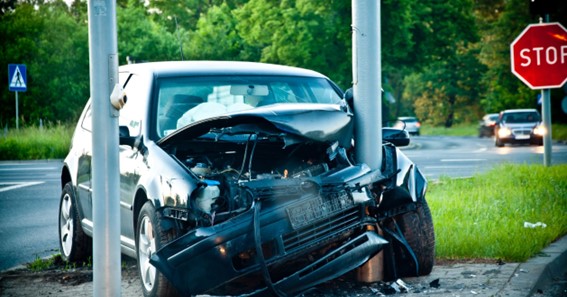We expect car manufacturers to design and produce safe vehicles. However, manufacturers sometimes release vehicles onto the market without completing proper testing procedures. They also design vehicles poorly and sell vehicles with components that fail at critical moments.
Sometimes a motor vehicle may have a defect that results in a crash or serious or fatal injuries. A car manufacturer, who sells an unsafe, poorly designed, or manufactured car could be held liable for injuries to the victim.
If you have been involved in a car accident in Macon, GA, it is important to find a qualified car accident lawyer who can ensure you receive the compensation you need and deserve.
Click here – Five simple ways to cut back on your car expenses
Safety Obligations for Auto Manufacturers
All automakers are required to notify the National Highway Traffic Safety Administration within five days of discovering any defects. It does not always happen. Because recalls can be costly and difficult, manufacturers sometimes take their time reacting to defects. Unfortunately, a recall can only be initiated after a vehicle has been in multiple accidents or injuries.
Over $85 million has been paid by car companies since 2009 to cover intentional withholding of defects from the public. This does not include $66.5 million in civil penalties against Toyota and the $1.2 billion criminal penalty. Vehicles recalled because of safety problems have surpassed $390 million since the law was passed.
Sometimes manufacturers agree to recalls because of NHTSA investigations and court orders. Manufacturers must notify dealers, distributors, and owners of vehicles if they discover a safety defect. The problem must be fixed by the manufacturer at no cost to the owner. Monitoring recall campaigns is done by the NHTSA. In 2017, 30.7million units were recalled. However, 17.6 million vehicles were sold by car companies, which mean that the industry recalls approximately 74% more units than it delivers to consumers.
Click here – Which Battery Is Right for My Car?
The Vehicle Manufacturer’s Liability for Defective Products
When defective products cause injury or fail, victims can sue designers and manufacturers.
Types of defects
- Design defects–These occur when the product’s design makes it unfit for its intended purpose.
- Manufacturing defects – The design of the product may have been safe, but it was unsafe due to substandard manufacturing.
- Warning or label defects–Though there is nothing wrong with the product’s design or manufacturing, manufacturers sometimes fail to warn the consumer that there are inherent dangers to using the product as it was intended.
Proving Product Defect Liability
A plaintiff must show the following to support a product liability claim:
- Defects or failure to warn of defects.
- Injury–The plaintiff must prove injury while using the product.
- Causation – The victim must prove that the injury occurred because of the defective product.
- Damages – Most state laws require that the victim prove he or she has suffered damage.
If the plaintiff can prove that the manufacturer owed the plaintiff a duty to care in relation to the product or that the manufacturer breached it (such as when designing or building the product), then a lawsuit against the manufacturer or dealer may be filed for negligence. Because it requires proof of specific actions by the manufacturer or others involved in creating a product, negligence is more difficult than strict liability.
Types of Vehicle Defects
Steering Defects
A driver can lose control of their vehicle and cause an accident by using defective steering components, such as the steering column or power steering.
Fuel System Defects
After a collision, a fuel system problem, such as a fuel pump, gas tank or fuel filter, can lead to a fire. Fuel system defects can cause burns and even explosions. Mazda recalled thousands of vehicles because of a fuel system defect in 2017.
Tire Defects
Tires keep the vehicle in contact with the road. They transmit traction as well as braking forces. They support the vehicle’s load, absorbing road shocks, and maintaining the vehicle’s direction. Tire failures can cause tire rot, ruptures, sudden blowouts, and zipper failures.
Airbag Defects
Airbags in cars are a vital safety feature that prevents many fatal injuries. Airbags can be inflated in less than one second after a collision. The airbag acts as a cushion, protecting the head and chest from severe injury in a car accident. In some cases, serious injuries can be caused by poor construction or defects in the bag material. A defective airbag caused by poor construction forced the recall of more than 70 million vehicles by one of the biggest manufacturers of vehicle airbags.
Computer Defects
The car’s internal computer manages many details about vehicle performance, including speed control and heating and cooling. A defective computer, for example, can cause the cruise control’s acceleration to be too rapid and lead to an accident.
Also have a look and read about download Voot app for pc.
Seat Defects
During an accident, a defective seatback could cause the seat to fall. These problems can be especially severe in rear-end collisions that may cause injuries to children who are seated in the back.
Wiring Defects
To control all electronic components in a car, it takes a lot of wiring. A defective wiring system can cause electronic malfunctions that could lead to dangerous situations while the car is moving.
Seatbelt Defects
A defective seatbelt can cause serious injuries to the occupants of the vehicle.
Conclusion:
Representing yourself in a car accident claim with a lot of damages is highly risky. Being represented by an attorney is essential when facing manufacturers.







